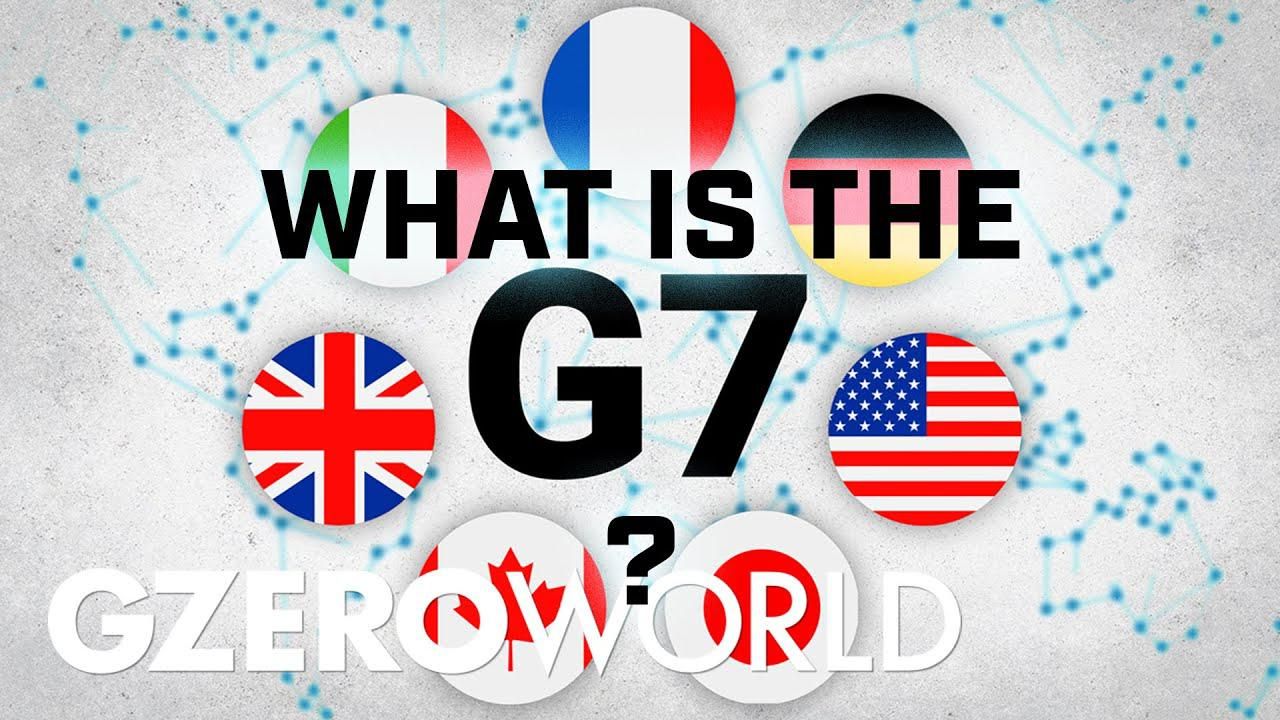June 22, 2021
President Biden's first G7 Summit as America's President also marks the first time those world leaders have gathered in person since the start of the COVID pandemic. Want to know a little more about the group, and why it exists in the first place? You came to the right place. We're called GZERO, after all!
The G7 actually began as the G6, when the leaders of France, West Germany, the USA, Japan, the UK and Italy met in a Chateau outside of Paris to squabble their way out of an oil shock and financial crisis. They had so much fun they agreed to do it every year. They even let Canada join the party in 1976, making it the G7.
But in the 1980s, Cold War politics took over and the focus shifted eastward to Tehran and Moscow. Longstanding conflicts between Iran and Iraq turned into all-out war, and a Soviet boondoggle in Afghanistan captured the group's attention. The G7 became defined as much by what it stood against (communism, authoritarianism) as what it stood for.
After the Soviet Union fell in the 1990s, a newly-humbled Russia got the invite, and joined! That made it the G8 for a while, but you knew that wasn't going to last. In 2014, with President Putin's decision to invade Crimea, the other seven said "Do svidanya."
In the years since, internal divisions and the rise of alternative institutions such as the G20 have led the world to question the G7's relevance—even though it still represents around 40% of global GDP ( but only 10% of the world's population.) And there's China, which has never been a part of the G7 and whose rise poses an economic, ideological, and security challenge to the group.
This recent summit will surely be one of the most important. How they handle the "converging crises," as President Biden has said, of vaccine distribution, economic recovery, and climate change will be the test…of whether the G7 matters, especially in our GZERO World.
Watch the episode of GZERO World with Ian Bremmer: Has Biden convinced the G7 "America is back"?
From Your Site Articles
- Biden-Putin summit: US wants predictability; G7's strong COVID ... ›
- Combating cybercrime a focus at G7 and Biden-Putin summits ... ›
- Biden and G7 take on China - GZERO Media ›
- Expect Biden's first European trip to drive concrete steps with G7, EU ... ›
- Russia losing in the West - GZERO Media ›
- Putin improves his hand in Ukraine - GZERO Media ›
- G-7 alignment & US political challenges - GZERO Media ›
- Does alcohol help bring the world together? - GZERO Media ›
- How booze made us...civilized - GZERO Media ›
More For You
Bad Bunny during the Super Bowl LX halftime show press conference at Moscone Center.
Kirby Lee-Imagn Images
100 million: The number of people expected to watch the Super Bowl halftime performance with Bad Bunny, the Puerto Rican superstar and newly minted Album of the Year winner at the Grammys.
Most Popular
Think you know what's going on around the world? Here's your chance to prove it.
- YouTube
An imminent US airstrike on iran is not only possible, it's probable.
Americans are moving less — and renting more. Cooling migration and rising vacancy rates, especially across the Sunbelt, have flattened rent growth and given renters new leverage. For many lower-income households, that relief is beginning to show up in discretionary spending. Explore what's changing in US housing by subscribing to Bank of America Institute.
© 2025 GZERO Media. All Rights Reserved | A Eurasia Group media company.
